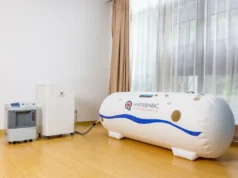
Intensive outpatient rehab (IOP) is one of the most effective forms of treatment for substance abuse and mental health disorders. IOP allows patients to receive intensive treatment while living at home and continuing to work or go to school.
IOP is more effective than inpatient rehab for several reasons. First, IOP allows patients to continue to live their lives while receiving treatment. This is important because it allows patients to practice the skills they are learning in treatment in real-world situations.
Second, IOP is more flexible than inpatient rehab, which can be important for those who have work or family obligations. IOP also generally costs less than inpatient rehab, which can be a significant factor for many people.
To learn more about the reasons why IOP is more effective than inpatient rehab, read on!
What is Intensive Outpatient Rehab?

Intensive Outpatient Rehab (IOP) is an intensive form of treatment that provides an alternative to inpatient treatment for those with substance abuse or mental health disorders. It typically involves individual, family, and group therapy sessions as well as drug and alcohol addiction education and relapse prevention skills. IOP generally lasts between three and five hours a day and can be completed in weekly or biweekly blocks. The duration of treatment depends on the individual’s needs and goals, however, treatment usually lasts from eight to twelve weeks. IOP allows patients to continue their day-to-day life, such as going to work or school, while receiving intensive treatment for their disorder.
Inpatient vs. Outpatient Rehab
Inpatient rehab is often considered the ideal treatment for those struggling with a substance abuse or mental health disorder. This type of treatment requires the patient to stay in an inpatient facility for an extended amount of time, often for weeks or months. This provides 24/7 monitoring and allows an individual to focus solely on getting well. In contrast, intensive outpatient rehab allows patients to continue their day-to-day life while receiving treatment. IOP is administered between three and five hours a day on a regular basis and individuals can generally complete the program in three to six weeks. This type of treatment is beneficial because individuals can learn the skills they need in treatment while simultaneously being able to practice them in everyday life.
The Benefits of Intensive Outpatient Rehab

Intensive outpatient rehab offers many benefits over inpatient rehab. In terms of cost, IOP is often more affordable than inpatient rehab. This is important for those with financial constraints who may not be able to pay for inpatient treatment. Furthermore, IOP is more accessible as it does not always require an individual to be away from home for a set amount of time, which can be beneficial for those with work or family obligations. IOP is also more evidence-based than inpatient rehab as many of the same components are included in IOP treatment, such as individual and group therapy, drug and alcohol addiction education, and relapse prevention skills. This is important for those who want to ensure that they are receiving treatment that is grounded in current research.
Intensive Outpatient Rehab is More Flexible
In comparison to inpatient rehab, intensive outpatient rehab is more flexible. As previously mentioned, this form of treatment allows individuals to continue their day-to-day life while receiving treatment. This is important as it allows an individual to practice the skills they are learning in the IOP setting and to receive support in real-life situations. For those who have family or work responsibilities, IOP is an ideal choice as it allows an individual to continue juggling the demands of their life while also getting the treatment they need. IOP also allows an individual to begin their treatment sooner, as it often requires less planning and preparation than inpatient rehab.
Intensive Outpatient Rehab is More Affordable

In comparison to inpatient rehab, intensive outpatient rehab is generally more affordable. This is important for those who have financial constraints and are in need of treatment. IOP can range from a few hundred dollars to over a thousand dollars per month, depending on the individual’s needs. Generally speaking, IOP is significantly more affordable than inpatient rehab, making it an ideal choice for those who are looking for an effective but less expensive option.
Intensive Outpatient Rehab is More Accessible
IOP is considered to be a more accessible form of treatment than inpatient rehab. This is because IOP does not always require an individual to be away from home for an extended amount of time. This is beneficial for those who have family or work responsibilities. In addition, IOP allows an individual to begin their treatment sooner, which can be important for those who need to begin their treatment right away.
Intensive Outpatient Rehab is More Evidence-Based

Intensive outpatient rehab is also considered to be more evidence-based than inpatient rehab. This is because IOP often includes components such as individual and group therapy, drug and alcohol addiction education, and relapse prevention skills. All of these components are backed by scientific research and are considered to be effective in the treatment of substance abuse and mental health disorders.
Intensive Outpatient Rehab is More Comfortable
For those who are apprehensive about inpatient rehab, intensive outpatient rehab is a more comfortable choice. IOP allows patients to receive treatment in a less intimidating setting while still having access to the same components as inpatient rehab. This can be important for those who need a more relaxed setting to focus on their recovery.
Intensive Outpatient Rehab is More Successful

Intensive outpatient rehab is also considered to be more successful than inpatient rehab. This is because, as previously mentioned, IOP allows individuals to practice the skills they are learning in treatment in real-world situations. The ability to use the skills outside of the treatment setting can be important for long-term recovery, as it allows individuals to practice the skills and adjust them as needed to fit their changing circumstances.
When considering rehab for substance abuse or mental health disorders, intensive outpatient rehab (IOP) is often the best option. IOP is more flexible, more affordable, and more accessible than inpatient rehab. It is also more evidence-based and more comfortable.
Finally, IOP is more successful than inpatient rehab as it allows individuals to practice the skills they are learning in treatment in real-world situations. For all these reasons, intensive outpatient rehab is an effective and beneficial choice for those seeking treatment.









